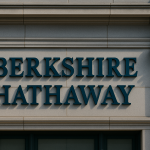HSBC Hong Kong, in collaboration with Cathay Pacific and EcoCeres, has launched a new initiative to promote the adoption of sustainable aviation fuel (SAF) in the region. This move is part of a broader strategy to mitigate carbon emissions in air travel, aligning with global sustainability goals. The initiative reflects the growing commitment of major corporations to invest in environmentally friendly solutions. Such partnerships emphasize the importance of corporate responsibility in the transition to greener technologies.
In recent years, similar initiatives have emerged, reflecting an industry-wide trend towards sustainable aviation. Airlines and financial institutions have been increasingly investing in biofuels and other renewable energy sources. Cathay Pacific’s goal to integrate SAF into 10% of its fuel consumption by 2030 aligns with these efforts, demonstrating the industry’s commitment to reducing its carbon footprint. The partnership with HSBC and EcoCeres echoes past collaborations aimed at fostering a cleaner aviation sector.
What Does the Initiative Involve?
HSBC has committed to acquiring 3,400 tonnes of SAF from EcoCeres for use by Cathay Pacific at the Hong Kong International Airport. This purchase is notable as HSBC’s largest SAF acquisition to date. The fuel will be produced from 100% waste-based biomass feedstock, specifically used cooking oil, significantly reducing lifecycle carbon emissions. This is equivalent to saving emissions from approximately 10,000 roundtrip Economy class flights between Hong Kong and London. EcoCeres ensures that the feedstock is fully traceable, enhancing the transparency and environmental credibility of the initiative.
How Do Stakeholders View This Initiative?
The stakeholders have expressed their commitment to this initiative through various statements. Ronald Lam, CEO of the Cathay Group, acknowledged the partnership’s role in promoting shared sustainability goals.
“We are grateful to HSBC for this landmark partnership, showcasing shared sustainability leadership, and to EcoCeres for their market leading SAF production,”
he stated. Luanne Lim, HSBC Hong Kong’s CEO, described the project as a pioneering effort that could lead to larger implementations.
“This pilot programme could help pave the way for broader implementation,”
she added, underscoring the collaboration’s potential impact.
EcoCeres, represented by Executive Chairman Matti Lievonen, highlighted the partnership’s contribution to decarbonization efforts.
“This initiative will support HSBC in improving the traceability of its travel supply chain,”
he asserted, reflecting the broader significance of the initiative in promoting renewable energy solutions. The collaboration stands as a potential model for other global efforts aimed at sustainability in aviation.
HSBC, Cathay Pacific, and EcoCeres have embarked on a notable initiative aimed at advancing sustainable aviation in Hong Kong. The collaboration involves significant investments in SAF, with EcoCeres facilitating the production process through waste-based biomass feedstock. Such initiatives highlight the aviation industry’s shift towards renewable energy sources to reduce environmental impact. The stakeholders have voiced strong support for this innovative approach, emphasizing its potential as a template for future global efforts. As the industry continues to evolve, the success of these partnerships will likely be pivotal in shaping a more sustainable future for air travel.










